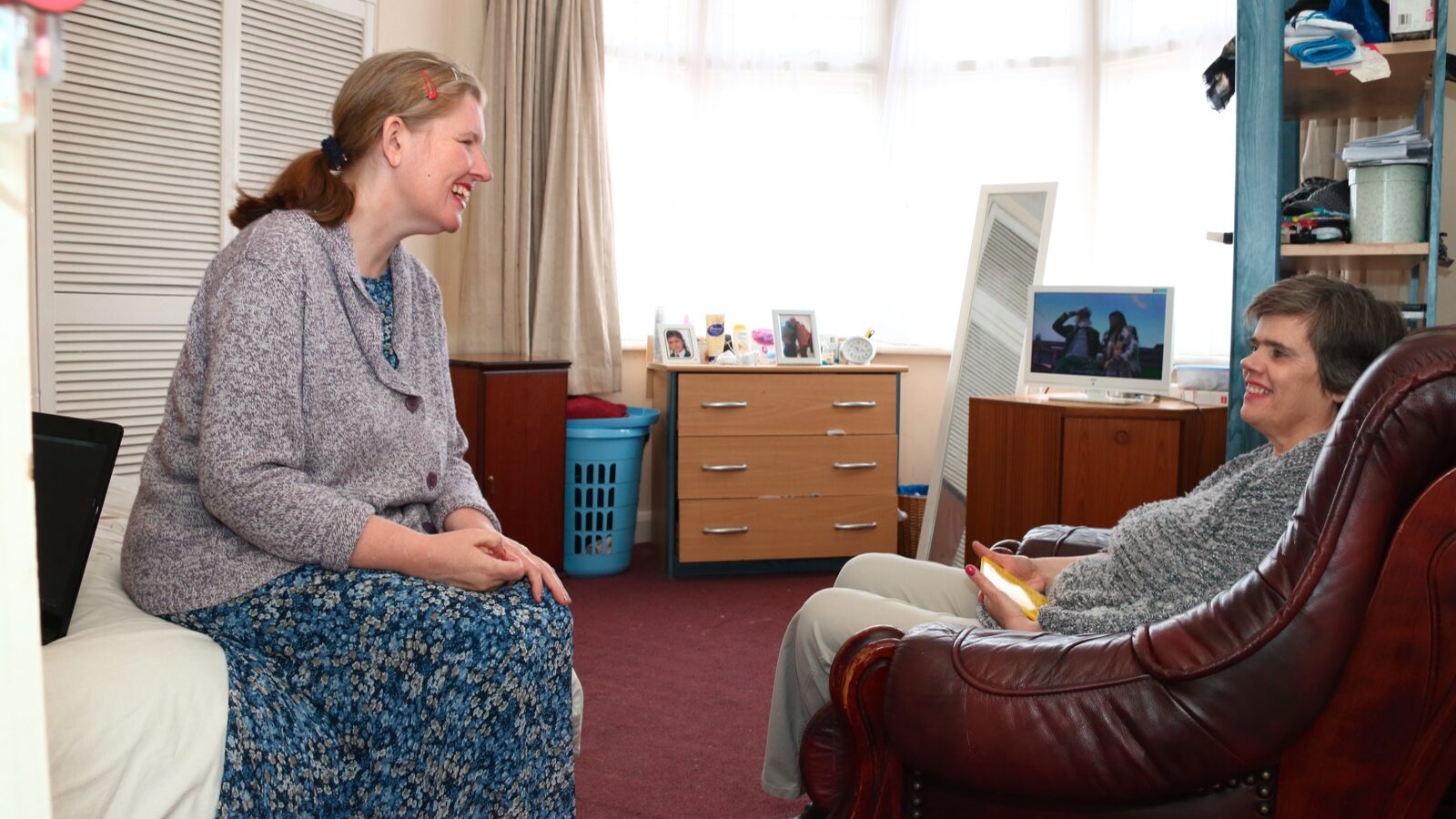Belonging can be an active process and the role of social inclusion is often overlooked, studies have found.
Actively belonging
Kaley A, Donnelly JP, Donnelly L, Humphrey S, Reilly S, Macpherson H, Hall E, Power A. Researching belonging with people with learning disabilities: self-building active community lives in the context of personalisation. British Journal of Learning Disabilities. 11 June 2021.
This study explored how learning-disabled people are building lives that support them to feel they belong in the community.
The authors designed a qualitative project with input from local people (such as neighbours and shopkeepers), support bodies, local authority representatives and learning-disabled people.
Presented in an accessible version, the study looked at how “people with learning disabilities and their allies are ‘self-building’ their daily lives when responsibility for daytime social care and support is handed to them”.
Interviews, focus groups, observing activities and photovoice (photography to guide interviews) were used to examine how belonging was created and supported.
While, with personal budgets, people are increasingly shaping day-to-day life, social care cuts mean personalised care lacks funding and consistency in relationships. This impacts the creation of meaningful belonging.
Participants were clearly able to identify spaces that encouraged or discouraged belonging. Examples included a local shop where staff were friendly and feeling time pressure on a bus from drivers and passengers.
This project explored belonging as an interactive state where a person and their allies are active, not passive, in creating “meaningful engagement and reciprocal relationships within local neighbourhoods or networks between people with and without disabilities”.
A key finding was the importance of feeling welcome in everyday spaces at all times, making friends, being part of regular social networks, and being informed of what was happening in their community and support available.
This research gives insights into making day-to-day living accessible and community focused.
Sisters and brothers
Boland G, Guerin S. Connecting locally: the role of adult siblings in supporting the social inclusion in neighbourhoods of adults with intellectual disability. British Journal of Learning Disabilities. 4 July 2021.
This study explored the role of adult siblings in connecting their learning disabled sister or brother to life in the community. Little research has examined this.
The authors asked two questions. First, what role – if any – do non-disabled adult siblings play in supporting their brother or sister to engage in their locality? Second, what are the experiences of: the siblings offering support for local engagement; and people with intellectual disabilities of being supported by their brother or sister?
The use of a multiple dyad (two individuals) case study methodology and semistructured interviews enabled researchers to gather a wealth of data.
Siblings shared their joys and difficulties of supporting local engagement, with the authors noting that “levels of involvement with their brother/sister with intellectual disability varied considerably, influenced in part by emotional bonds”.
Participants were clearly able to identify spaces that encouraged or discouraged belonging.
For the adult with the learning disability, sibling engagement offered “emotional and practical support in their lives”. Many of the non-disabled sisters and brothers supported their relative through their own networks.
While experiences were diverse, siblings’ involvement is relatively new to service providers; they are often left on the margins of the systems supporting their relative.
Final conclusions noted the value of shared activities that are enjoyed equally by both siblings and offered “the potential to lead to developing acquaintances outside family and service provider circles”.





